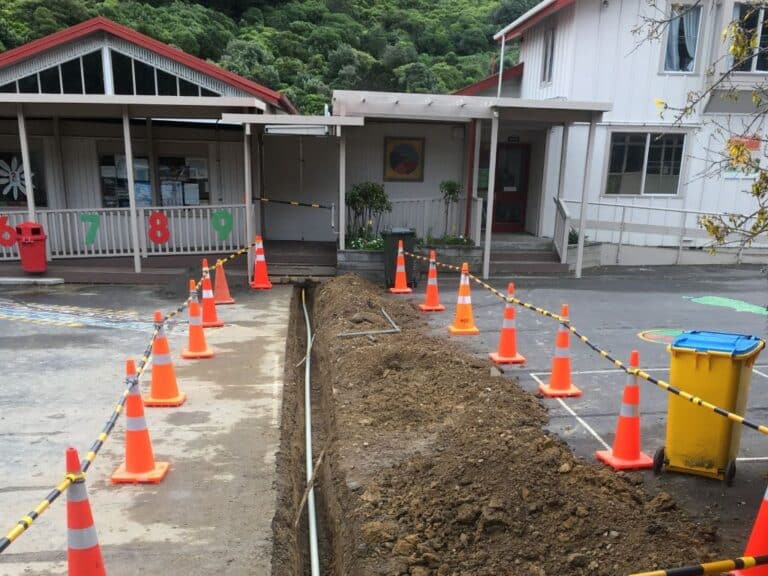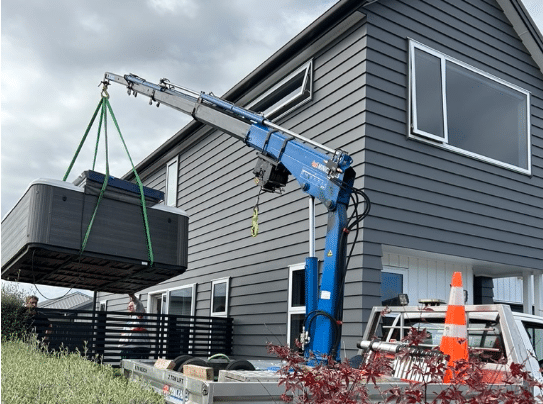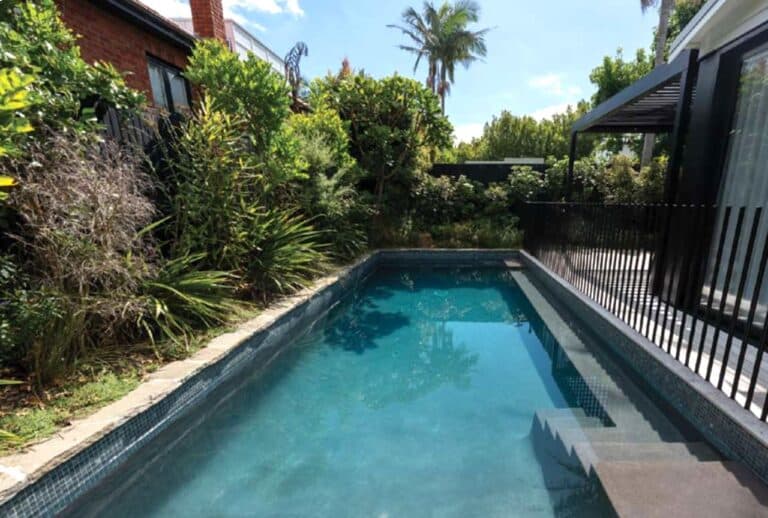As electric vehicles (EVs) become increasingly popular, many homeowners in Christchurch, in fact, all of New Zealand, are considering installing a home charging station.
A home charging station, also known as an electric vehicle supply equipment (EVSE), is a device that allows you to charge your EV at home. This article will cover everything you need to know about installing a home charging station for your EV.
Here’s Why You Need A Home EV Charging Station:
- It’s more convenient. Charging your EV at home is safer than going to a public charging station.
- Peace of Mind. You’ll always have a fully charged battery, so you can use your EV whenever necessary.
- You save money. Charging your EV at home is significantly cheaper than using public charging stations.
- And you save time. Charging your EV at home can be faster than charging it at public charging stations so that you can return to the road much quicker.
- Increased property value. Having a home EV charging station can increase the value of your property.
- It’s Environmentally Friendly. You can reduce your carbon footprint by using renewable energy to charge your EV at home.
- And there can be other incentives. Many governments and some power companies offer incentives to encourage EV adoption, which can help offset the installation costs.
There are Two Types of EV Home Charging Options Available:
Trickle Charge
Trickle charge provides charging through a standard 220V plug. It’s great for emergencies when you have a low battery and can’t reach a public charging station or access an AC wall box at home.
However, it’s not the most practical option for everyday use as it can take up to 14 hours to charge your car thoroughly. You should be aware too, that trickle charging may also cause issues with your electricity bill and electrical loads.
AC Household Charging with Wallbox
The second option is the AC Household Charging with Wallbox, the most common and recommended option. It charges through a 230V outlet and is three to four times faster than the Trickle Charge, depending on your car’s acceptance rate and the charger.
Therefore, it’s perfect for topping up your EV overnight and only takes around six hours to fully charge a 40 kWh battery car. It’s important to note that this option requires installing a dedicated EV charging wall box, which a trained electrician should do.
But don’t worry; some financial incentives may be available to help minimise the installation cost.
Control Costs And Save Time
In addition to the convenience and peace of mind, installing a home charging station can save you money in the long run. This is because the cost of charging at home is significantly lower than public charging stations.
According to Drive Electric NZ, public EV charger costs in NZ vary with rapid charging around $10 per 100km. Standard chargers are currently free but much slower. Therefore you must set aside several hours to wait for your car to charge fully.
Plus, many governments and some power companies offer incentives to encourage EV adoption, which can help offset the installation cost.
How To Organise Your EV Home Installation
Step 1: Assess Your Electrical System
Before installing a home charging station, you must assess your electrical system to ensure it can handle the increased load. Most EVSEs require a 240-volt circuit with a dedicated breaker, and the wiring needs to be at least 50 amps. Suppose you need to figure out your electrical system’s capacity. In that case, we recommend you consult a licensed electrician to assess your system.
Step 2: Choose Your Home Charging Station
Several home charging stations are available, ranging from basic models to smart charging stations that allow you to control your charging remotely. Later on in this article, we will provide a list of the top five. When choosing a home charging station, you need to consider the following factors:
- Charging speed: This is the rate at which the charger can charge your EV. The charging speed depends on the station’s power output, measured in kilowatts (kW). A higher power output means a faster charging speed.
- Connector type: Most EVs use a Type 1 or Type 2 connector. Ensure you choose a charging station with the correct connector type for your EV.
- Price: Home charging stations range in price from a few hundred dollars to several thousand dollars, depending on the features and power output. Consider your budget and the parts you need when choosing a charging station.
Step 3: Install Your Home Charging Station
Once you have chosen your home charging station, it’s time to have it installed. You will need to hire a licensed electrician to do the installation. The installation process involves the following steps:
- Mounting the charging station on the wall or a stand
- Running the electrical wiring from the electrical panel to the charging station
- Installing a dedicated breaker and upgrading the electrical panel if necessary
- Testing the charging station to ensure it is working correctly
Top 5 Home Charging Stations for Your EV in Christchurch
Tesla Wall Connector – This charging station is designed specifically for Tesla vehicles and can charge up to 44 miles of range per hour. It is easy to use and has a sleek design that blends in with your home’s exterior.
JuiceBox Pro 40 – This charging station can charge up to 32 miles of range per hour and is compatible with all EVs. It has smart features that allow you to control your charging remotely and monitor your energy usage.
ChargePoint Home Flex – This charging station can charge up to 37 miles of range per hour and has a flexible power output that allows you to adjust the charging speed to your EV’s needs. It also has smart features that allow you to control your charging remotely.
ClipperCreek HCS-40 – This charging station can charge up to 32 miles of range per hour and is compatible with all EVs. It is durable and weather-resistant, making it an excellent choice for outdoor installations.
Siemens VersiCharge – This charging station can charge up to 22 miles of range per hour and is compatible with all EVs. It has a compact design that makes it easy to install in tight spaces.
Our recommendation is the EVnex Charger which is designed and manufactured in New Zealand. These EV chargers are 4x faster, more reliable, and can charge all electric vehicles.
Wrapping it Up
Installing a home charging station for your EV is an excellent investment that can save you time and money in the long run. Following the steps outlined in this article ensures that your home charging station is installed safely and correctly.
With the right charging station, you can enjoy the convenience of charging your EV at home and never have to worry about finding a charging station while out and about.
If you are considering purchasing a home charging station, assess your electrical system, choose a charging station for your EV that meets your needs and budget, and hire a licensed electrician to install it safely and correctly.
By installing a home charging station and potentially having a completely sustainable home, you can also do your part in reducing your carbon footprint and promoting sustainable transportation.
In addition, EVs produce significantly less greenhouse gas emissions than traditional gasoline-powered vehicles, and charging them with renewable energy sources such as solar panels can further reduce your carbon footprint. What’s not to love about that?




